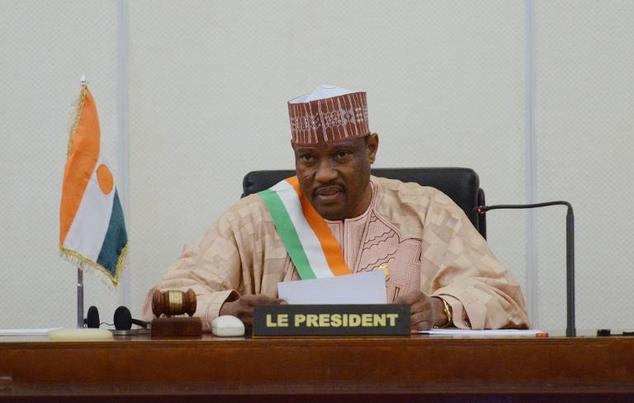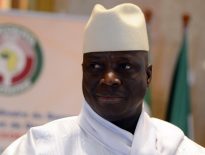A fugitive arch-rival of Niger’s President Mahamadou Issoufou goes on trial in absentia Friday over a baby trafficking case which he claims is part of a political plot to discredit him.

Former parliament speaker Hama Amadou and his wife are among some 20 people accused of involvement in the trafficking of dozens of babies from Niger’s more populous southern neighbour, Nigeria.
Amadou, who fled to France in August after parliament gave the green light for him to be questioned by the authorities, says the case is part of a smear campaign in the run-up to the next presidential election in 2016.
No evidence have been provided to substantiate these allegations of child trafficking, Amadou said recently, calling it a political case like all the rest.
Authorities in Nigeria regularly raid private clinics, where women come to give birth to babies that are sold to childless couples.
The case in Niger revolves around some 30 babies, including a set of twins, who were trafficked from Nigeria to Niger through Benin, a judicial source told AFP.
The leader of Niger’s ruling party accused Amadou’s wife of travelling to Nigeria and bringing back two children to which she claimed she gave birth.
Many sterile couples from families that are well known in Niamey then went to Nigeria and brought back children, Mohamed Bazoum said.
Around 20 people from political, business and military circles have been arrested since June on charges of falsifying the identity of a child’s mother — an offence which carries a sentence of up to eight years in prison.
The suspects were all released on bail pending their trial.
Amadou will be judged in absentia, a judicial source said.
Political tensions in Niger have sharpened since Amadou joined the ranks of the opposition in August 2013, becoming Issoufou’s main rival.
A warrant was issued for his arrest after he fled to France. A new parliament speaker was elected in November to replace him.
Amadou’s party has accused the government of trying to harass, isolate and take down Hama by all means possible.
The government, however, insists the affair is a purely criminal one.
To close our eyes, now that would have been political, Justice Minister Marou Amadou said in November, declaring: This case is a common law case.





